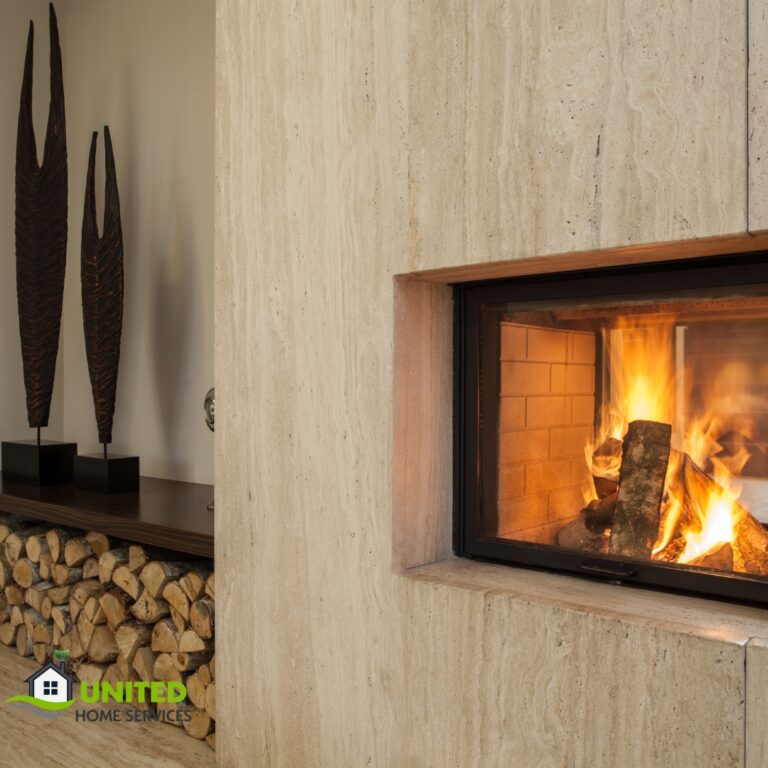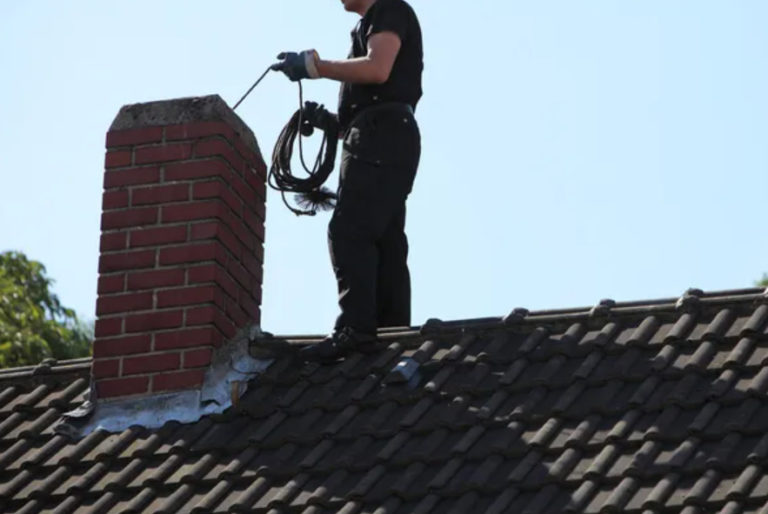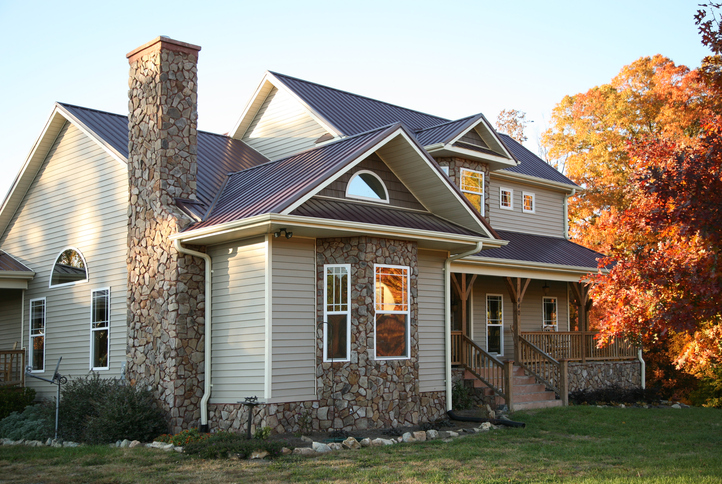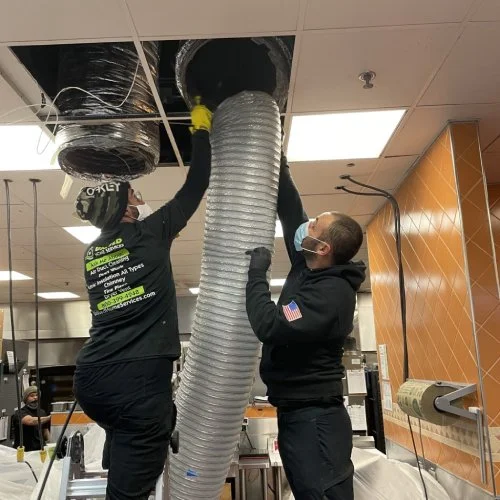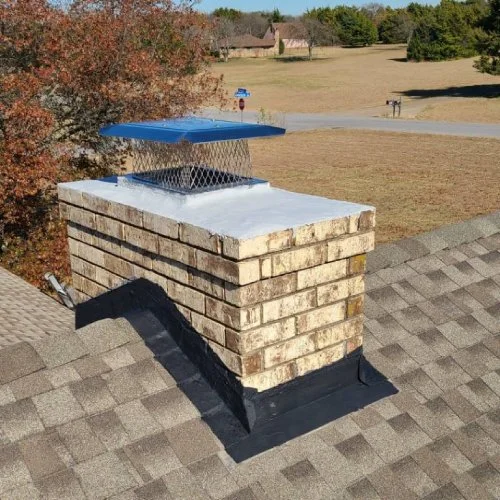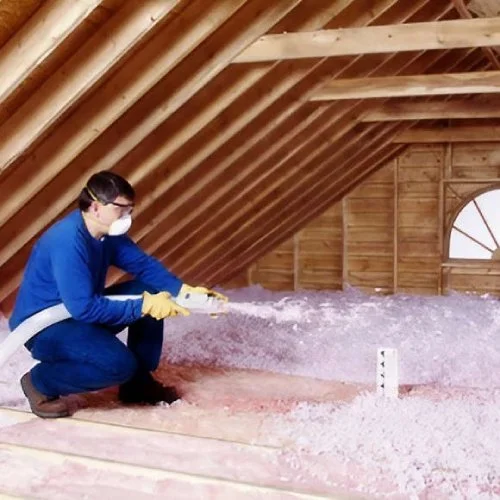As a homeowner, you may wonder whether you need to hire a professional chimney sweep. After all, cleaning your chimney can seem like a daunting task, and you may be tempted to put it off or even skip it altogether to avoid the additional maintenance costs.
However, regular chimney cleaning is crucial for the safety and efficiency of your home. Not to mention, a chimney fire that can result from neglecting regular cleaning will end up being far more costly and inconvenient than taking action beforehand.
When Should You Hire A Professional Chimney Sweep?
If you own a fireplace or wood stove, keeping your chimney clean is essential for preventing fires and ensuring proper ventilation. In this article, we’ll explore the question of whether you need a professional chimney sweep with some of the signals that you might’ve missed.
Fire Prevention
When you burn wood in your fireplace, creosote and soot can build up inside the chimney. This buildup can be highly flammable and can lead to a chimney fire if not removed on a regular basis. A chimney sweep will be able to remove this buildup, reducing the risk of fire and leaving your chimney ready for the upcoming burning season.
It’s also worth mentioning that certain types of fuel in your fireplace will require more frequent maintenance. For example, if you burn softwood or a large amount of unseasoned wood, it will cause more creosote to build up, so it will require more frequent cleaning.
Improved Efficiency & Ventilation
A blocked chimney can prevent proper airflow, which can make it difficult to start a fire or keep it burning. A professional chimney sweep will remove any blockages and ensure your chimney is functioning properly.
A regular chimney inspection is also necessary for the health and well-being of your family. A dirty chimney can allow dangerous gases, such as carbon monoxide, to enter your home. These gases can be deadly if not properly ventilated. By having your chimney swept on a regular basis, you can ensure that your family is safe from these dangerous gases as well as the risk of a sudden and devastating chimney fire.
Inspection Preparation
In addition to these reasons, some local building codes or insurance companies also require regular chimney cleaning, so it is best to check with them as well.
To help you understand more about a proper chimney maintenance schedule, we’ve already published a guide that addresses the question “How Often Should I Sweep My Chimney?”
Comprehensive Chimney Sweeping From United Home Services
Regular chimney cleaning is crucial for the safety and efficiency of your home, so don’t fall into the trap of skipping it altogether. Now that you know a bit about the dangers of avoiding necessary chimney maintenance, you may also want to check out our guide on how to know when you need a chimney sweep.
At United Home Services, our team of chimney experts is here to assist you! In order to ensure the security and functionality of your chimney, we are committed to offering the best services possible. We use the most up-to-date methods and cutting-edge technology to make sure your chimney stays clean and properly functioning around the clock.
Don’t put off doing this necessary task any longer.
Make an appointment to have your cleaning with United Home Services right now. Don’t wait; take action right now and book your cleaning with a qualified chimney sweep right away!
- Chimney Sweep in Addison, TX
- Chimney Sweep in Allen, TX
- Chimney Sweep in Anna, TX
- Chimney Sweep in Arlington, TX
- Chimney Sweep in Balch Springs, TX
- Chimney Sweep in Bedford, TX
- Chimney Sweep in Benbrook, TX
- Chimney Sweep in Blue Mound, TX
- Chimney Sweep in Blue Ridge, TX
- Chimney Sweep in Carrollton, TX
- Chimney Sweep in Cedar Hill, TX
- Chimney Sweep in Colleyville, TX
- Chimney Sweep in Copeville, TX
- Chimney Sweep in Coppell, TX
- Chimney Sweep in Crowley, TX
- Chimney Sweep in Dallas, TX
- Chimney Sweep in Dalworthington Gardens, TX
- Chimney Sweep in DeSoto, TX
- Chimney Sweep in Duncanville, TX
- Chimney Sweep in Euless, TX
- Chimney Sweep in Everman, TX
- Chimney Sweep in Fairview, TX
- Chimney Sweep in Farmers Branch, TX
- Chimney Sweep in Farmersville, TX
- Chimney Sweep in Forest Hill, TX
- Chimney Sweep in Fort Worth, TX
- Chimney Sweep in Frisco, TX
- Chimney Sweep in Garland, TX
- Chimney Sweep in Glenn Heights, TX
- Chimney Sweep in Grand Prairie, TX
- Chimney Sweep in Grapevine, TX
- Chimney Sweep in Haltom City, TX
- Chimney Sweep in Haslet, TX
- Chimney Sweep in Hurst, TX
- Chimney Sweep in Hutchins, TX
- Chimney Sweep in Irving, TX
- Chimney Sweep in Josephine, TX
- Chimney Sweep in Justin, TX
- Chimney Sweep in Keller, TX
- Chimney Sweep in Kennedale, TX
- Chimney Sweep in Lancaster, TX
- Chimney Sweep in Mansfield, TX
- Chimney Sweep in McKinney, TX
- Chimney Sweep in Melissa, TX
- Chimney Sweep in Mesquite, TX
- Chimney Sweep in Murphy, TX
- Chimney Sweep in North Richland Hills, TX
- Chimney Sweep in Plano, TX
- Chimney Sweep in Princeton, TX
- Chimney Sweep in Prosper, TX
- Chimney Sweep in Red Oak, TX
- Chimney Sweep in Rendon, TX
- Chimney Sweep in Richardson, TX
- Chimney Sweep in Rowlett, TX
- Chimney Sweep in Sachse, TX
- Chimney Sweep in Saginaw, TX
- Chimney Sweep in Southlake, TX
- Chimney Sweep in University Park, TX
- Chimney Sweep in Watauga, TX
- Chimney Sweep in White Settlement, TX
- Chimney Sweep in Wylie, TX

